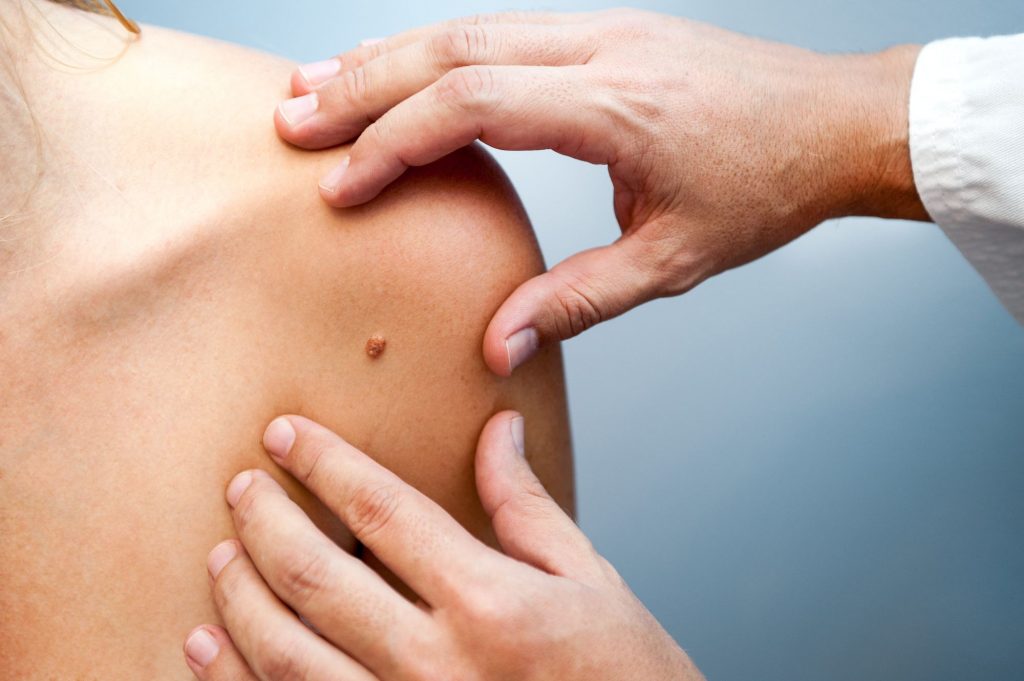Skin cancer is a deadly disease which has been on the rise since the 1960s. In 1979 the Skin Cancer Foundation has been formed with the sole aim of preventing and fighting skin cancer better. With global warming and pollution on the rise, everyone is susceptible to skin cancer nowadays.
Read More:Harmful Effects of Early Sun Exposure in Kids no One Ever Told You About
In this article:
What is Cancer?
What is Skin Cancer?
What is UV (Ultra violet) Radiation?
Are Some People More Likely to Get Skin Damage from the Sun?
How do I Protect Myself from UV Rays?
A Guide to Protect your Loved ones from Skin Cancer
What is Cancer?
Cancer is caused by the abnormal growth of cells which leads to the destruction of body tissue. The National Cancer Institute states that as new cells develop as abnormal cells, then the old body cells which should die do not get destroyed. New cancer cells continue forming when they are not needed. This causes growths like tumors and can spread into other areas (like the brain) which can be life threatening.
Read More:The Importance of Protecting Your Child’s Vision from UV
What is Skin Cancer?
Skin cancer occurs when the DNA damage that has not been corrected in skin cells form mutations, genetic defects and cause the cells of the skin to grow rapidly and form tumors. Skin cancer is caused most often by ultraviolet rays of the sun or due to excessive tanning. It can also be due to genetic factors. The American Cancer Society states that there are 3 main types of cancer:
Basal Cell Skin Cancer
This is the most common type and occurs mostly on areas exposed to the sun a lot like head and neck. Early detection of this type of cancer can prevent scarring and deformity. If it is treated at an early stage it is not fatal.
Read More:21 Tips to Keep Your Child Safe This Summer
Squamous Cell Skin Cancer
This is also similar to basal cell skin cancer. If not detected early, they can grow and affect important tissues and organs. Hence this should never be left untreated.
Melanomas
Melanomas are the deadliest types of skin cancer. These develop from melanocytes. Melanocytes are the cells that impart the brown pigment that gives a distinct colour to your skin. These can occur anywhere but most commonly on chest and back for men, and legs for women. These aren’t very common but in higher stages melanoma is very life-threatening.
What is UV (Ultra violet) Radiation?
Ultraviolet radiation is a radiation of a specific frequency and is mainly obtained from the sun. High exposure to UV rays increases your chances of skin cancer. There are 3 main types of UV radiation.
- UVA rays which can age your skin cells and cause damage to DNA. They increase chances of skin cancer.
- UVB rays have more energy than UVA rays and can damage DNA directly. They are the deadliest and are responsible for causing most number of skin cancers.
- UVC rays do not get through the atmosphere due to their chemical composition and frequency. Hence they do not cause skin cancer.
UV rays are at a maximum during the time of 10am to 4pm. They are stronger during summer and in regions closer to the equator. Sometimes clouds can cover UV rays but they usually get through even through clouds.
The National Weather Service and the Environment Protection Agency indicate how high the UV light is in a particular area, measured on a scale from 1 to 11+ which indicates the increase of your chances of sunburn and skin cancer.
Are Some People More Likely to Get Skin Damage from the Sun?
Yes, people with regular and prolonged exposure to UV rays for a long period of time are more likely to get skin cancer than others. If you had a history of skin cancer in your family or extreme sunburns as a child, you have a higher risk of developing skin cancer.
How do I Protect Myself from UV Rays?
By protecting yourself from UV rays you can essentially reduce your chances of skin cancer. Here’s how.
- Seek shade during 10 am to 4pm. This is the time when the strength of UV rays are maximum and so are your chances of getting sunburned. Use tinted windows in cars, homes and offices so that even if you go out in the sun you can limit your exposure.
- Don’t get sunburned. Use an umbrella when you step out in the heat or cover your face with a mask. You can also use sunglasses which are UV blocking, and a brimmed hat.
- Use a sunscreen. Sunscreen is very important when it comes to protection from UV rays. Use such a sunscreen which covers a broad spectrum (UVA/UVB) and with an SPF of 30 or higher. Apply the sunscreen at least 30 minutes before stepping out in the sun for best results.
- If you go swimming or in areas with exceptionally high then reapply sunscreen every 30 minutes. You should be extra careful around water and sand as these areas reflect the UV rays and can increase your chances of skin cancer.
- You should wear long sleeved shirts and pants. Dark clothing with fabric that is woven tightly block the sun more than loosely woven fabrics.
- There are certain medications that make you more susceptible to skin damage like antibiotics and anti-fungal medicine.
- Do not expose babies under 6 months to UV rays at all if possible. At this tender age their chances of getting sunburned are high and increase chances of skin cancer.
- Be more cautious if you have a lighter skin colour, skin that reddens or freckles easily, a large number of moles, or naturally blonde hair.
- Avoid tanning. Tanning is an indication of skin damage. It has been popular as a mode of relaxing and is even fashionable, but tanning beds emit UV rays and increase your chances of skin cancer. Use a bronzer instead.
- Regularly check up on your skin. Be careful to notice any new spots, moles or unusual patterns that have taken place on your skin. If the diameter of the lesion exceeds the size of a regular pea, go to a doctor immediately.
- Consume a diet rich in turmeric, tomato, salmon, carrots, mangoes as their beta carotene content prevents skin cancer.
References
https://www.medicinenet.com/skin_cancer_overview/article.htm













